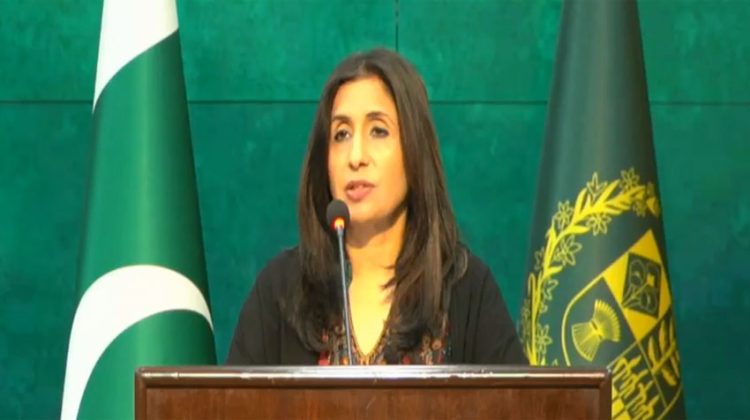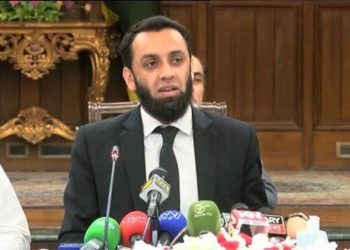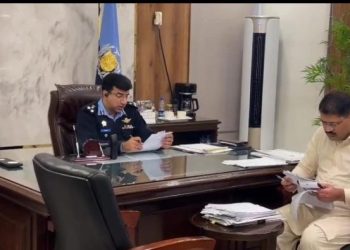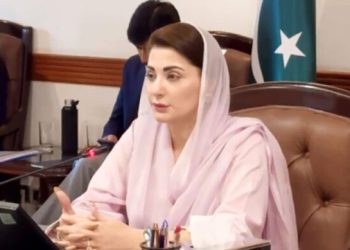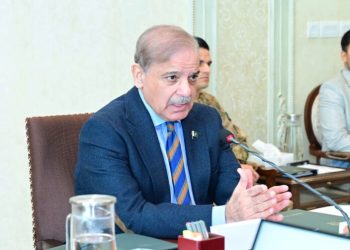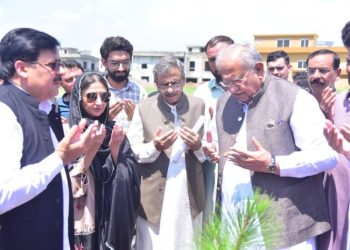By Naveed Siddiqui
ISLAMABAD: Foreign Office (FO) spokesperson, Mumtaz Zehra Baloch, delivered a robust response to recent comments from the United States regarding the safety of political prisoners, notably former Prime Minister Imran Khan. Baloch reiterated Pakistan’s stance on judicial autonomy, emphasizing that the country’s legal system operates independently, adhering to local laws and constitutional principles.
In a weekly media briefing, Baloch addressed concerns raised by the US State Department regarding the treatment of detainees in Pakistan. She underscored that due process and justice are fundamental tenets of Pakistan’s legal framework, and external directives are unwarranted. Baloch’s remarks came in the wake of US Senate Majority Leader Chuck Schumer’s purported warning to Pakistan regarding Imran Khan’s safety while incarcerated.
Furthermore, Baloch dismissed the findings of the US Commission on International Religious Freedom (USCIRF) report, labeling it as flawed and detached from Pakistan’s ground realities. She criticized the report for its reliance on unsubstantiated allegations and its failure to accurately reflect the situation regarding religious freedoms within the country.
Ongoing Dialogues with US and Saudi Arabia:
Baloch highlighted Pakistan’s ongoing dialogues with the United States and Saudi Arabia, aimed at enhancing bilateral cooperation on various fronts. Discussions encompassed security collaboration, countering violent extremism, and fostering increased investment opportunities.
Regarding the counterterrorism talks with the US, Baloch confirmed the continuation of dialogue, with both sides set to address pertinent issues such as security and combating terrorism financing. The Pakistan delegation, led by Additional Foreign Secretary (United Nations) Ambassador Syed Haider Shah, is actively engaged in these discussions.
In addition, Baloch emphasized Pakistan’s efforts to strengthen ties with Middle Eastern countries, particularly Saudi Arabia and other Gulf Cooperation Council (GCC) members. Talks centered on bolstering economic cooperation and attracting investment to Pakistan. Notably, discussions with Saudi Arabia included cooperation in the energy sector and exploring avenues for increased Saudi investments in Pakistan.
Response to Afghan Allegations and Calls for Cooperation:
Baloch addressed recent allegations from the Afghan defense ministry, which accused Pakistan of harboring ISIS sanctuaries. She dismissed the accusations as baseless and urged Afghan authorities to take effective action against terror groups operating within their borders. Baloch stressed Pakistan’s commitment to combating terrorism and reiterated the importance of cooperation from neighboring Afghanistan in this regard.
Moreover, Baloch highlighted Pakistan’s concerns regarding terrorist threats emanating from Afghanistan, citing evidence linking terrorist activities to individuals and entities within Afghan territory. She called upon Afghan authorities to take meaningful action against terror groups, including the Pakistan Tehreek-e-Taliban (TTP), and emphasized the need for comprehensive cooperation in combating terrorism.
In conclusion, Baloch reaffirmed Pakistan’s commitment to maintaining robust diplomatic engagements with various countries while asserting its sovereign right to independent decision-making, particularly in matters concerning domestic affairs and judicial processes.


